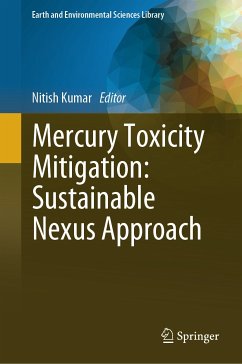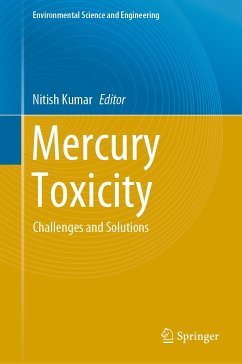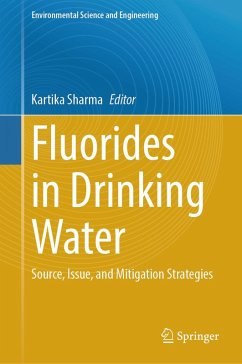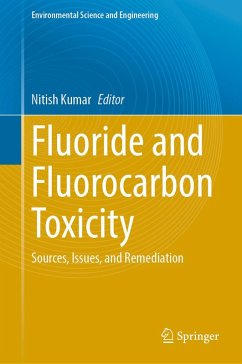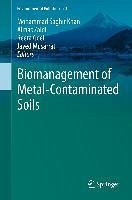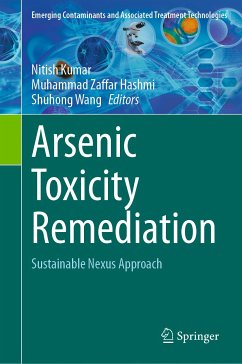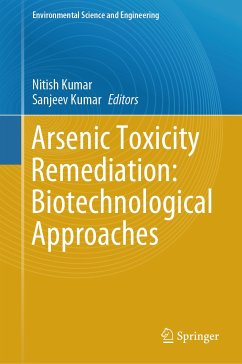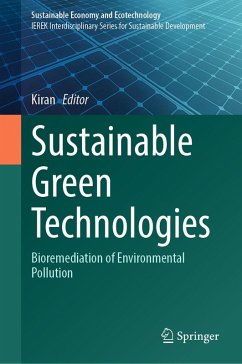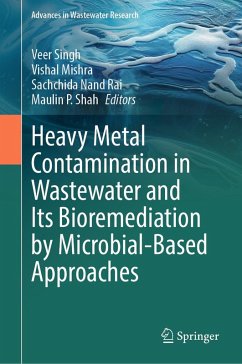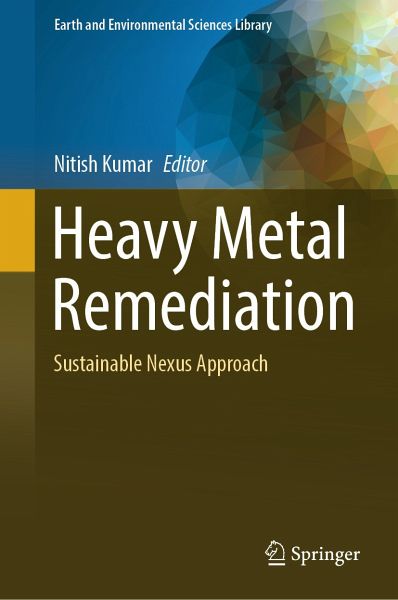
Heavy Metal Remediation (eBook, PDF)
Sustainable Nexus Approach
Redaktion: Kumar, Nitish
Versandkostenfrei!
Sofort per Download lieferbar
152,95 €
inkl. MwSt.
Weitere Ausgaben:

PAYBACK Punkte
76 °P sammeln!
Heavy metals, in general trace elements, are one of the major environmental problems. Nowadays, increasing environmental and global public health concerns related with environmental contamination by heavy metals are well known. Moreover, human exposure has risen dramatically because of an exponential increase of their use in several activities such as agricultural, industrial, technological and urban applications. They are presented in soils, water and atmosphere and they are a serious risk for the food chain.>50% is contaminated with toxic heavy metals. This situation warrants immediate atten...
Heavy metals, in general trace elements, are one of the major environmental problems. Nowadays, increasing environmental and global public health concerns related with environmental contamination by heavy metals are well known. Moreover, human exposure has risen dramatically because of an exponential increase of their use in several activities such as agricultural, industrial, technological and urban applications. They are presented in soils, water and atmosphere and they are a serious risk for the food chain.
>50% is contaminated with toxic heavy metals. This situation warrants immediate attention to limit the introduction of heavy metals into soil systems and to remove the prevailing heavy metals from polluted soils. However, the majorities of existing heavy-metal-removal technologies are expensive, inefficient, or generate secondary pollutants. Therefore, it is of great importance to develop cheaper, environmentally friendly and sustainable approaches (including the development of new immobilizing agents) to manage and rehabilitate heavy-metal-contaminated soils.
In the light of the aforementioned facts, this book sheds light on this global environmental issue, and proposes solutions to contamination through multi-disciplinary approaches and case studies from different parts of the world. It addresses sustainable heavy metal contamination remediation strategies using the potential applications of recent biological technology such as biotechnology, bioremediation, phytoremediation, biochar, absorbent, genetic engineering, and nanotechnology approaches. This book is of interest to researchers, teachers, environmental scientists, environmental engineers, environmentalists, and policy makers. Also, the book serves as additional reading material for undergraduate and graduate students of environmental microbiology, biotechnology, eco-toxicology, environmental remediation, waste management, and environmental sciences as well as the general audience.
>50% is contaminated with toxic heavy metals. This situation warrants immediate attention to limit the introduction of heavy metals into soil systems and to remove the prevailing heavy metals from polluted soils. However, the majorities of existing heavy-metal-removal technologies are expensive, inefficient, or generate secondary pollutants. Therefore, it is of great importance to develop cheaper, environmentally friendly and sustainable approaches (including the development of new immobilizing agents) to manage and rehabilitate heavy-metal-contaminated soils.
In the light of the aforementioned facts, this book sheds light on this global environmental issue, and proposes solutions to contamination through multi-disciplinary approaches and case studies from different parts of the world. It addresses sustainable heavy metal contamination remediation strategies using the potential applications of recent biological technology such as biotechnology, bioremediation, phytoremediation, biochar, absorbent, genetic engineering, and nanotechnology approaches. This book is of interest to researchers, teachers, environmental scientists, environmental engineers, environmentalists, and policy makers. Also, the book serves as additional reading material for undergraduate and graduate students of environmental microbiology, biotechnology, eco-toxicology, environmental remediation, waste management, and environmental sciences as well as the general audience.
Dieser Download kann aus rechtlichen Gründen nur mit Rechnungsadresse in A, B, BG, CY, CZ, D, DK, EW, E, FIN, F, GR, HR, H, IRL, I, LT, L, LR, M, NL, PL, P, R, S, SLO, SK ausgeliefert werden.



